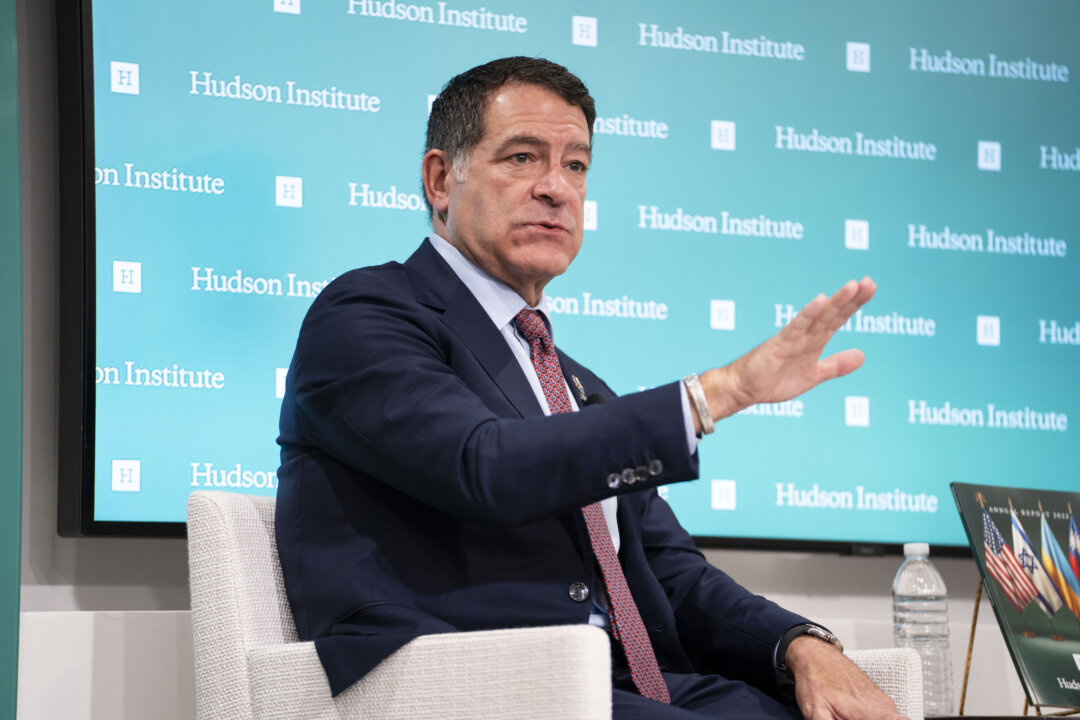Launched during the first Trump administration, the initiative targeted intellectual property theft by the Chinese regime.
WASHINGTON—House Committee on Homeland Security Chair Rep. Mark Green (R-Tenn.) said he expects to see a revival of the “China initiative” under the new administration.
“Yes, I think you’ll see that,” Green said when asked about the return of the initiative at a Hudson Institute think tank event on Dec. 17.
“We’re in a conflict with China on multiple levels, and too many people are asleep at the wheel.”
Launched during the first Trump administration, the Justice Department’s China initiative began in late 2018 and was terminated in early 2022.
The initiative targeted Chinese spies after the United States determined that there was large-scale, widespread theft of American intellectual property by China. The theft coincided with several tariffs the Trump administration imposed on Chinese imports.
The Justice Department in 2022 ended the program over criticisms of racial profiling. In February 2022, the Justice Department stated that the program focused on the actions of the Chinese communist regime, not people of Chinese descent. And that while it would continue to focus on threats posed by the regime, it would close the initiative. The decision followed a review ordered by Assistant Attorney General Matthew Olsen, the new head of the National Security Division.
Trump has nominated Florida Attorney General Pam Bondi to lead the Justice Department.
Green highlighted cases of Chinese infiltration and espionage targeting critical U.S. infrastructure such as port cranes and power plants.
He also echoed colleagues’ and experts’ recent calls for a strong cyber response in light of high-profile Chinese hacking.
In recent weeks, U.S. officials have confirmed that Chinese state-backed hackers had obtained access to major American telecommunications companies and were after communications by senior political figures. The hackers reportedly had access to the networks for months before officials confirmed the hack in October, and the intelligence community has confirmed the hackers still have access to the networks.
“Most of us here in DC, our phones have been compromised,” Green said. “Your text messages, who you’ve texted, who you’ve called and when, your geolocation, all that data is now in the Chinese Communist Party,” he said.
“It’s time to strike back.”
Green said that the United States could also send a message regarding the Chinese communist regime’s human rights abuses—including on American soil via transnational repression—through economic means.
“The actions we take, whether it be sanctions, tariffs, convincing businesses to … leave China, all that destabilizes China, right?” Green said. “They’ve got a debt problem.
“If you take economic actions where there are human rights abuses, then you can hopefully change behavior. But if not, you can certainly punish.”
House Select Committee on the Chinese Communist Party Chair Rep. John Moolenaar (R-Mich.), who has supported a bill to re-establish the China Initiative, told The Epoch Times he also believes the incoming administration will take seriously the threat from the Chinese regime.
“President Trump has nominated very good people who understand the threat from the Chinese Communist Party,” he said, pointing to several Trump appointments of China hawks to key positions.
Moolenaar said Trump’s nominees—Sen. Marco Rubio (R-Fla.) as secretary of state, Rep. Mike Waltz (R-Fla.) as national security adviser, and Rep. Elise Stefanik (R-N.Y.) as U.N. ambassador—are all lawmakers who have worked with the committee on China issues.
“All have collaborated with us, and I believe, will be strong advocates for a peace through strength policy,” he said.

